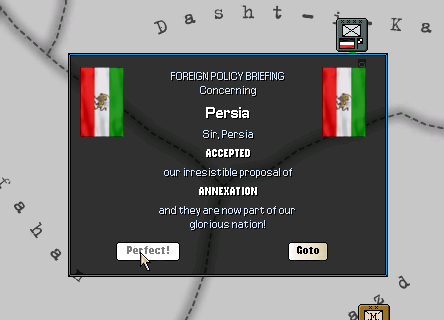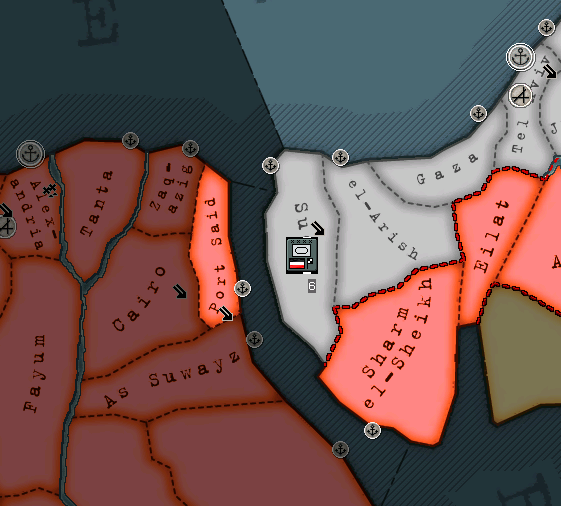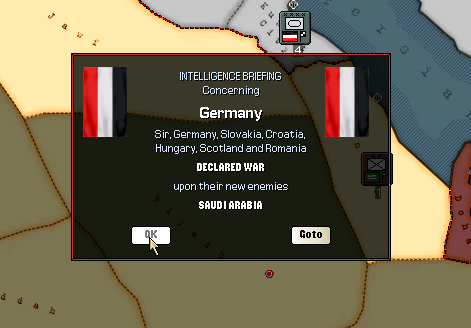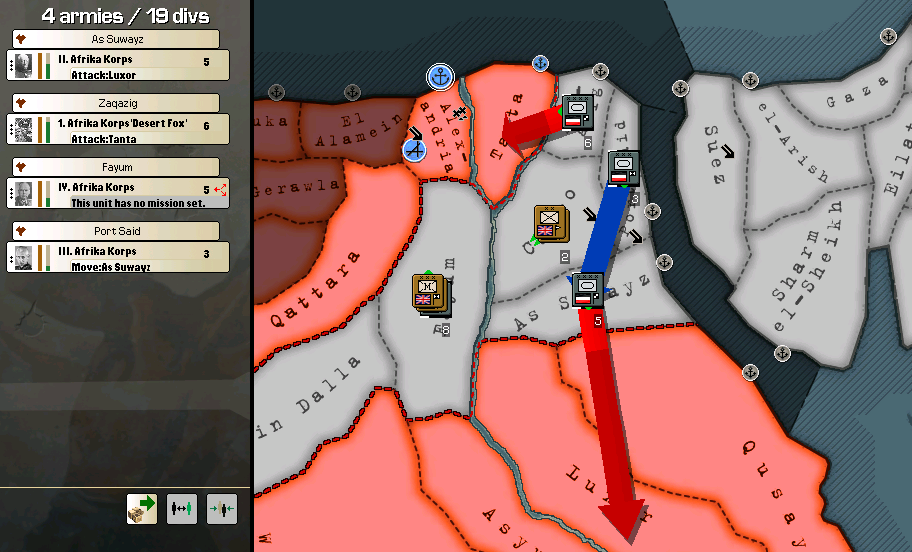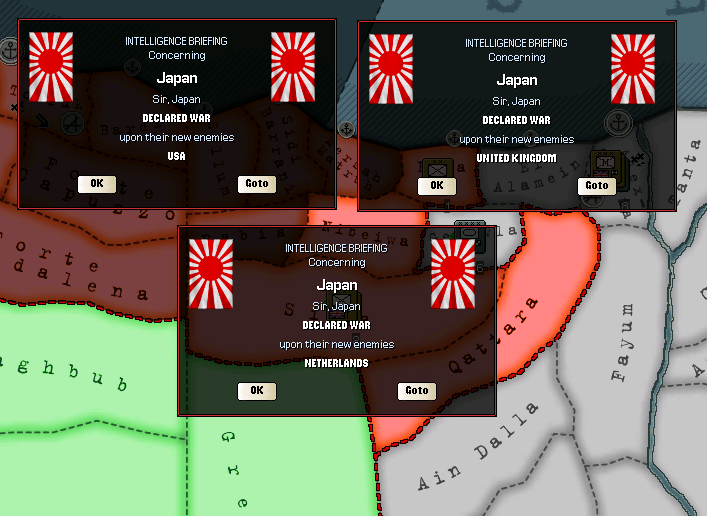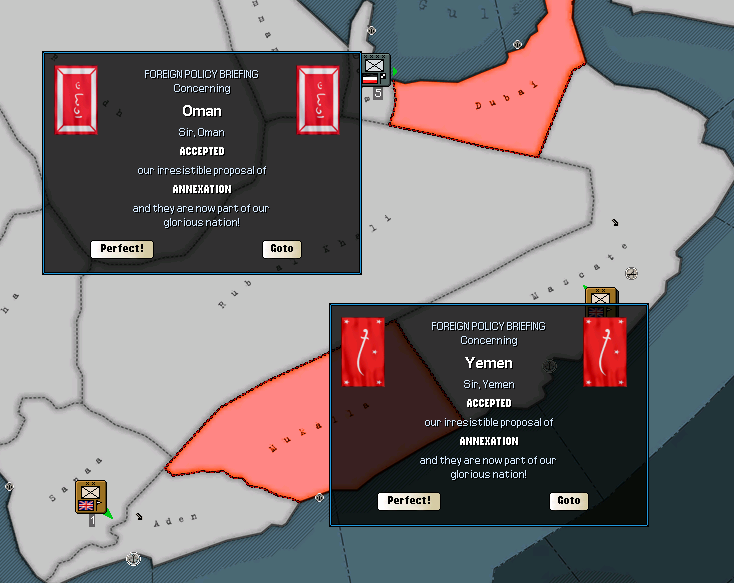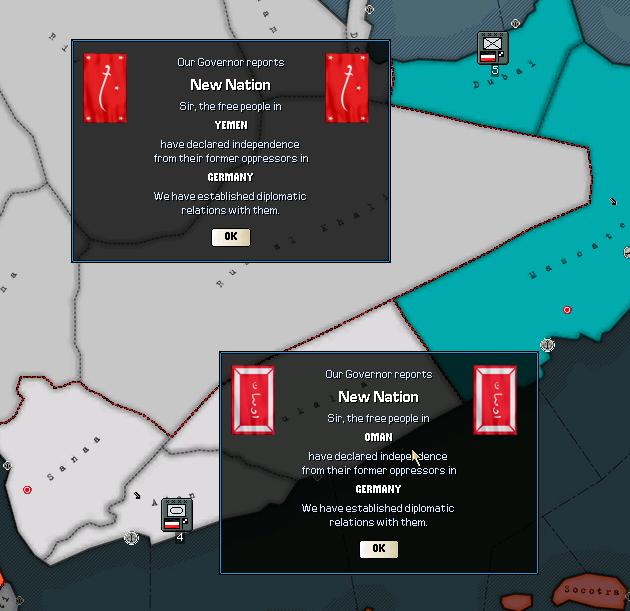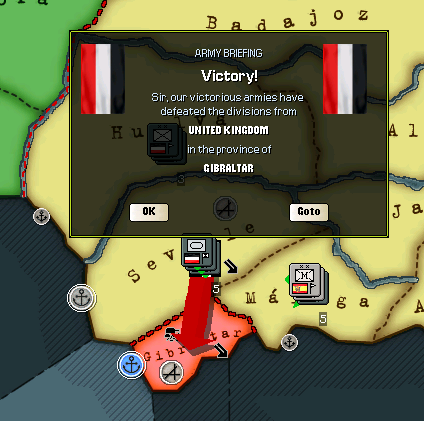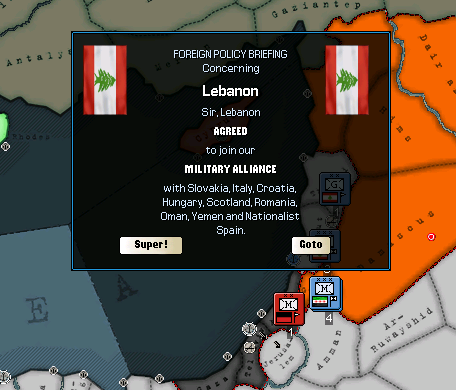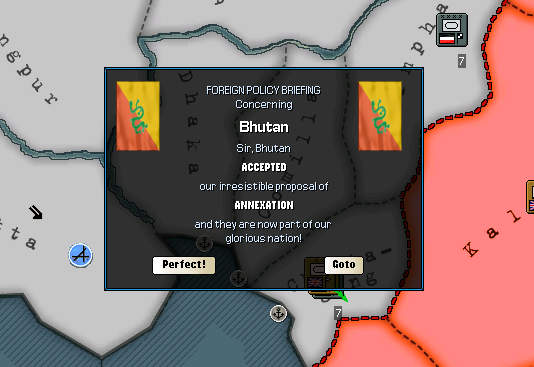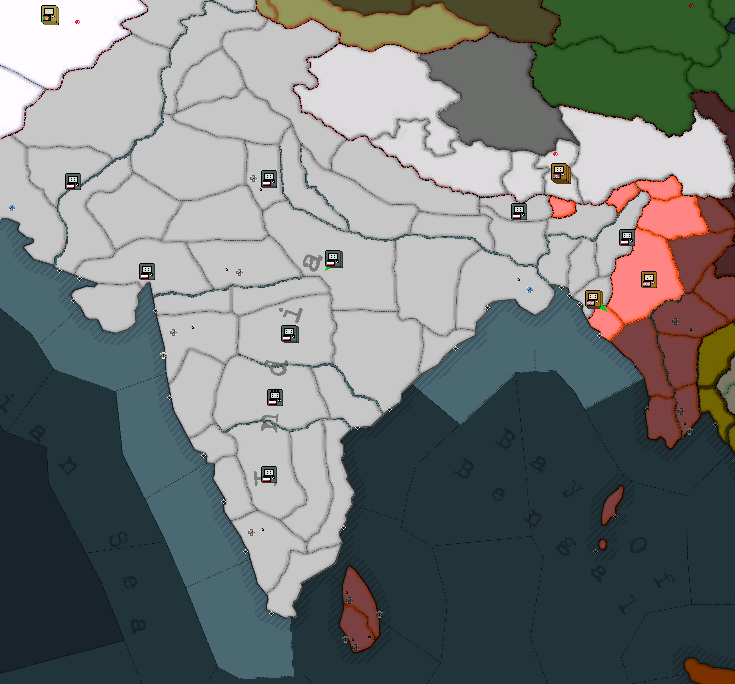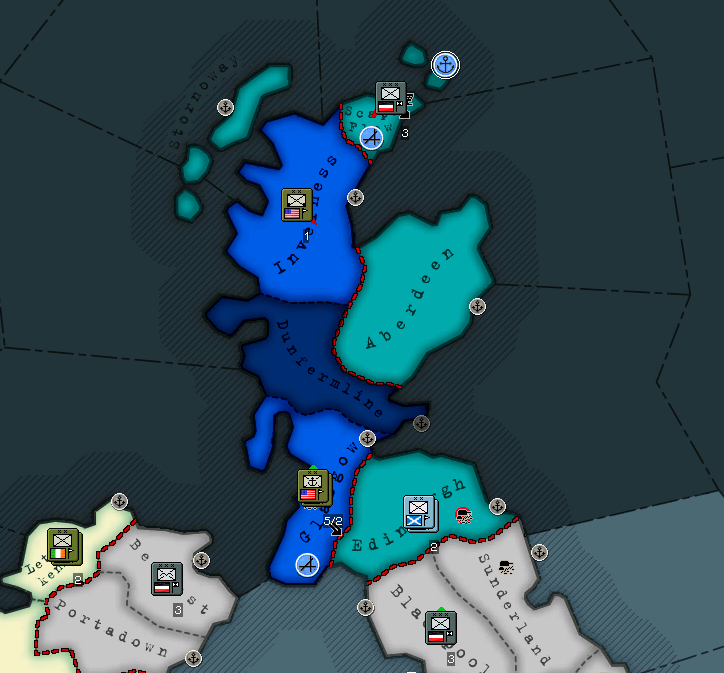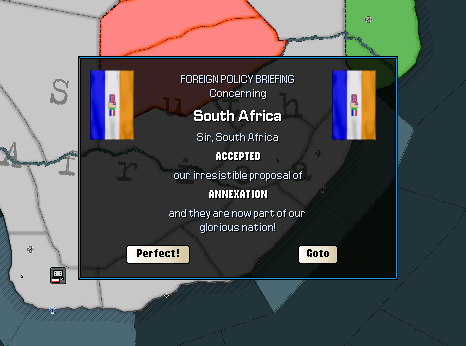With Britain under German control, authority of the northern half of the island was handed over to the new puppet government of Scotland. The new government was loyal to Germany and soon raised a Scottish army to free up German units garrisoning the region.
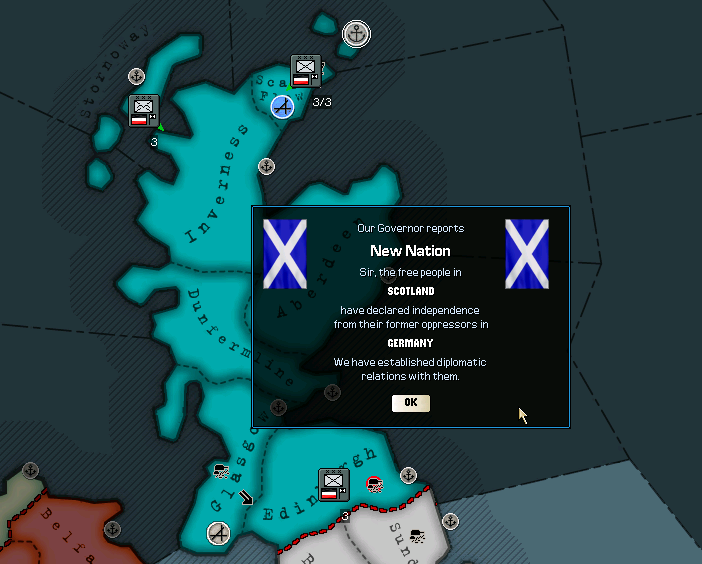
In the east, the German advance continued to push through Russia. With the fall of Moscow, the 47 divisions that had been besieging the city were now free to assist in the conquest of the rest of they country. 11 divisions headed north to the siege of Leningrad. The city had previously resisted a German attack, but the defenders quickly lost the battle to the much larger German force. In the south, German semi-motorized cavalry charged across the Urals into Chelyabinsk and Sverdlovsk, two of the larger industrial centers still under Soviet authority. With this, the Soviets finally broke down, and approached the Germans seeking a peace treaty. The Germans laid down their demands, and the Soviets reluctantly accepted. All Russian land west of the Urals was ceded to Germany, Soviet-occupied Persia was handed over, and Finland received the lands they lost in the Winter War, as well as Murmansk and the Kola peninsula. The media would later dub this "The Bitter Peace".
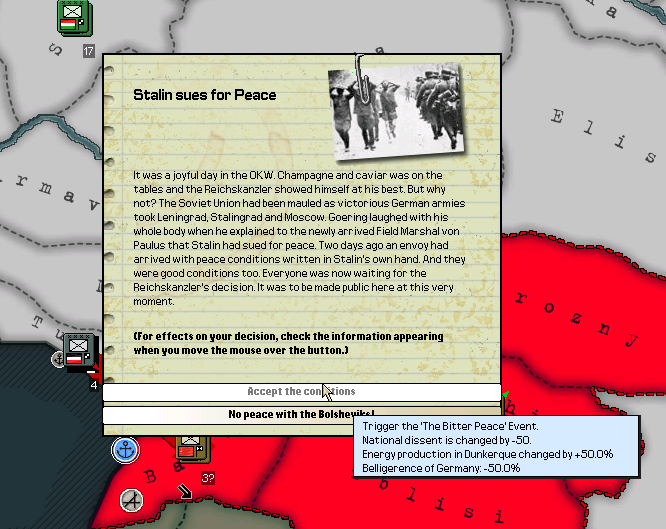
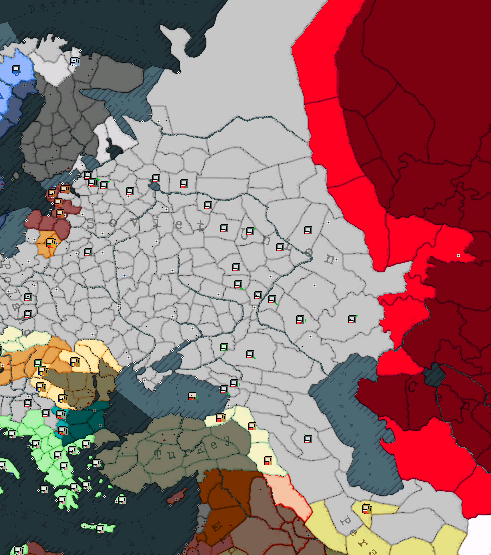

With the Soviet Union defeated, the Germans now had access to new battlefields against the British in the Middle East. Soon German reinforcements arrived and German forces pushed into Persia. German infantry surrounded Teheran as Rommel and his Panzer divisions entered Iraq. Soon the Wehrmacht had moved south and captured the Persian coast, as well as the oil rich province of Abadan, and annexed the country.
Seeing the success enjoyed by their neighbours, the Romanians sent an envoy to Berlin to ask to join the Axis. Hitler accepted, knowing he could use the Romanian soldiers to garrison his newly acquired Russian territories.
Rommel quickly drove through northern and western Iraq before entering the British Transjordan. More Panzer divisions arrived from the north and rolled through the Iraqi desert. Soon the capital of Baghdad had fallen. The British and Iraqi soldiers had retreated to the port city of Basrah as German forces attacked from the north and east. German forces were much more numerous than those of the British, and they were forced to retreat into Kuwait. With the fall of Basrah, the Iraqis surrendered, while the British soldiers would soon surrender once the Germans entered Kuwait.
Rommel's forces quickly rolled through Palestine and arrived in the Sinai peninsula and managed to capture the Suez. Rommel and his forces waited here until more divisions could arrive from Iraq to support them and they could help their Italian allies in north Africa.
In order to reach the British colonies and allies at the southern end of the Arabian peninsula, the Germans would have to go through Saudi lands. Knowing that they would never allow this, German forces invaded. Before long Riyadh was in German hands and the Saudis surrendered. German divisions moved on to the British territories to the south.
With 19 divisions now having arrived in Suez, Rommel and his newly formed Afrika Corps pushed into Egypt. Cairo fell quickly and the Germans crossed the Nile. Soon the British forces in Northern Egypt had been cut off from those in the rest of Africa. Rommel began to push the British west, entrapping them between the advancing German panzers and the Italian defensive line.
In the east, Japan had been having trouble against the combined forces of the Nationalist and Communist Chinese. Whenever they tried to advance, the Nationalists would drive them back. Seeing how much difficulty the Japanese were having against the Chinese, Hitler was puzzled when Japan declared war on much more advanced foes, the British, Dutch, and Americans. This greatly angered the Fuhrer, as the Americans joined the Allies, meaning they had also gone to war with the Germans.
Back in Arabia, the Germans advanced into Yemen and Oman, with their governments quickly surrendering. All that was left was a few British divisions wandering the vast deserts of Arabia. The British soldiers were quick to surrender and Arabia was in German hands. Yemen and Oman were immediately regranted independence as German puppets.
By mid April, 1941, Rommel's forces had eliminated the British in Egypt and Libya, seized Sudan, and was pushing into Ethiopia. To the east, the Wehrmacht had advanced into India. The British government had taken exile in Delhi, but now the Germans were closing in. On the diplomatic front, relations were steadily improving with Spain, Finland, Latvia, Lebanon, and Syria. It was hoped that these nations could soon be brought into the Axis, especially Spain. With Spain in the Axis, they could seize Gibraltar and seal off the Mediterranean.
 (in my game)
(in my game)



